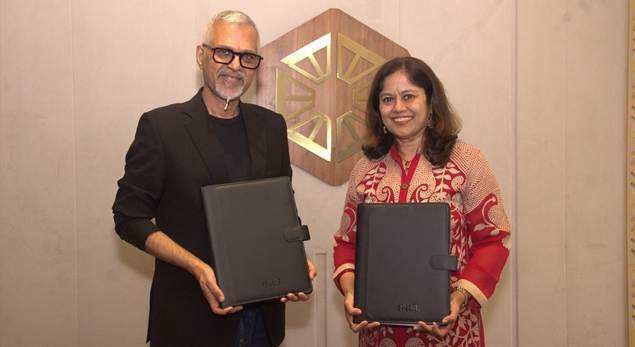COVID-19 continues to unfold, industries, sectors and organizations everywhere are making feverish attempts to find ways and means to handle the challenges that stare us all in the face. While it is evident that no single enterprise can remain immune to the bleeding, some industries have the unfortunate disadvantage of being bruised in the jugular. The hospitality sector is entirely dependent on travel, trade and tourism for its sustenance. The massive spate of cancellations in recent weeks have largely eroded the ability of hotels across India to operate without piling up worrisome losses. The absence of new business on books is only adding to the grim story ahead. Spare a thought for the cruise line operators and investors. Their business has come to a grinding halt across the globe and their inability to stay afloat (no pun intended) is a stark reality. It may not be evident to many that about 8% to 10% of the total staff strength of the global cruise liners are Indian. As all these professionals make their way back home, jobless, it will create a large mass of skilled manpower that could be scrounging for opportunities, only to find that there exist none in the Indian Hotel Sector at the moment. Adding to these woes is the fact that anywhere between 15% to 25% of the employees across the various branded hotel chains in India are either contracted or casual staff. Under financial duress, the first line of layoffs that hotel companies shall make over the weeks ahead are these people. From a human resources & unemployment standpoint, that is a serious crisis in the making.
While this may paint a picture of gloom and doom, it is also imperative that we highlight the two core strengths of the hospitality business. Much like a heavyweight boxing champion, the hospitality industry is able to bounce right back every time it gets punched in the gut; and it displays a lot of heart. Moreover, the dynamic nature of this business allows it the agility to alter strategies in quick time and find means to mitigate problematic situations.
That being said, the problem is very real and the danger to the hotel business is clear and present. Hotelivate has been discussing the ongoing impact of COVID-19 with key industry stakeholders and we present a logical and data-driven assessment of the loss in total revenue that the Indian Hotel Sector is likely to face in 2020.
January was brisk business as usual for most hotels across the nation. Very early signs of reduced travel became evident in mid to late February. March has borne the brunt of many large-scale cancellations across the corporate, MICE and leisure segments. Notably, the extent of this lost business has primarily been seen across the top eight markets. Various Tier Two and Tier Three hotel markets in India continue to witness a small erosion in business for now, and occupancies in at least the first half of March were only partially lower despite the spread of the virus in some states. Similarly, established leisure markets have received a spike in cancellations as well as a significant drop in both booking pace and BOB while smaller and more remote destinations have, in fact, seen little impact. Unfortunately, business for the second half of March seems to have dropped off a cliff, pretty much across the board.
We expect the next two to three months to remain grim, with thousands of companies adopting the ‘work from home’ and ‘no travel’ policies. At this point our estimation of revenue losses to the Indian Hotel Industry in 2020 assume that the impact of this virus may begin to wane by June or July, and business may begin to pick up again towards the second half of the year. It is also our assumption that as the last few months of 2020 come by, it is likely that inbound travel may still be a fraction of what India gets in typical years. For domestic hotel companies that follow the fiscal year regime, this amounts to a weak Q4 FY20 and a weaker Q1 FY21. For companies that follow the calendar year, H1 losses cannot be salvaged just by the strong January that went by and they will be pinning their hopes on H2 being able to somehow pull things back up, albeit only partially.
In this ‘best case scenario’ of the viruses impact only being devastating for the next two to three months, our estimates are that the weighted impact of this situation is likely to erode the blended nationwide occupancy (in calendar year 2020) by about 18% to 20%, while the blended nationwide ADR may see a drop of 12% to 14% this year. Reduced room revenue, coupled with erosion in both restaurant demand and MICE business, are very likely to have a cascading effect on non-room revenue for hotels across India as well. It is therefore our estimate that the overall loss of total revenue for the ~ 140,000 branded / organised hotel rooms across the nation will be anywhere between US$1.3 billion to US$1.55 billion. This amounts to a 27% to 32% erosion in the overall revenue as compared to last year. Moreover, given that these 140,000 rooms represent only about 5% of the total lodging sector in India (95% of it being B&Bs, Guest Houses, Unbranded & Unorganised Supply, etc), it is our estimate that there is likely to be an additional loss of anywhere between US$4.2 billion to US$4.7 billion in total revenue across the alternate accommodation industry. We reiterate that this loss of revenue is given the current situation and an assumption that normalcy may begin to prevail in the next 90-days or so. Should this situation extend for a longer period, hotels in India are then likely to bear losses that simply cannot be quantified.
None of these estimations even begin to address the plight of a long list of connected and ancillary service providers such as tour & travel operators, wedding & conference planners, vendors and suppliers, etc. It has often been stated that the larger tourism industry in India contributes to about 10% of the GDP (approximately US$275 billion). It may not be an overstatement to assert that almost all of this revenue may dwindle to a painfully negligible amount if COVID-19 does not come to a halt this year.
While we quantify and qualify the challenges, it is also important to present a few suggestions to help with a reboot in the months ahead. These measures could certainly help if the government were to give them a serious consideration.
Loss of revenue in this magnitude is a cause of concern. However, businesses across the world are continuing to draw heart from the belief that it’s not ‘if’ this will get better, but ‘when’. It is possible (and one certainly hopes so) that India does not witness a rapid spread of this virus and the effects are largely contained in the weeks ahead. The sooner the world finds reason to believe that the worst is behind us, the quicker the chances of all businesses picking up of course. In that event, the Indian Hospitality industry could certainly benefit from a quicker ramp-up: the other truth about travel, trade & tourism is that while it is usually the first to get hit, it also has the ability to be the first to pick back up. Here’s hoping the summer months ahead bring rays of hope.









